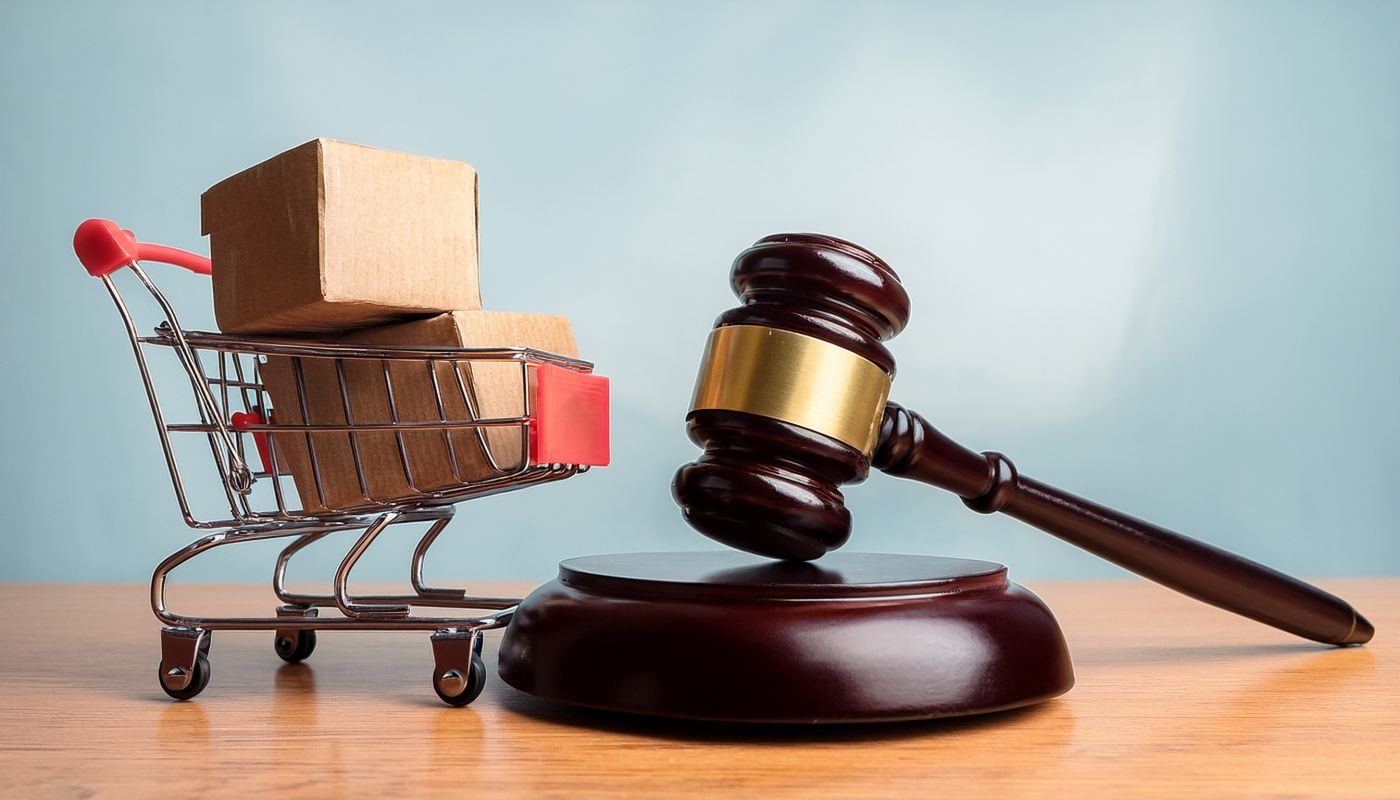In an increasingly digital world, data breaches have become a stark reminder of our vulnerabilities. When personal information is compromised, the aftermath can be overwhelming, leaving individuals feeling exposed and uncertain about their next steps.
When a data breach occurs, it can feel like our privacy, financial stability, and sense of security are all under threat at once. At Scott Hirsch Law Group, PLLC, in Coconut Creek, Florida, we know how stressful this situation can be, and we want to make sure you understand the legal rights and protections available to you.
If you’ve recently been impacted by a data breach, don’t wait—contact our firm today to learn about your options for moving forward and protecting yourself from further harm.
Data Breaches
A data breach happens when unauthorized individuals gain access to sensitive information. This can include Social Security numbers, credit card information, health records, or login credentials. Once exposed, this information can be misused in many ways, leading to identity theft, fraudulent charges, or ongoing financial harm.
The growing frequency of these breaches shows how important it is for all of us to understand what steps we can take both immediately after a breach and over the longer term. Each action we take not only protects us but also strengthens our ability to hold companies accountable for failing to secure our information.
First Steps After Discovering a Data Breach
When we learn that our information has been compromised, it’s natural to feel overwhelmed. However, acting quickly makes a major difference. These initial steps help minimize damage:
Review the breach notification: Most companies are required by law to inform affected individuals. This notice often contains details about what information was exposed and when the breach occurred.
Monitor financial accounts: We should carefully check our bank and credit card statements for unusual charges or withdrawals. Fraudulent activity often shows up within days or weeks of a breach.
Change affected passwords: If login credentials were exposed, changing them immediately reduces the risk of ongoing misuse. We should also avoid reusing old passwords.
Place fraud alerts or credit freezes: Contacting the three major credit bureaus—Equifax, Experian, and TransUnion—can add extra protection to our credit reports. Fraud alerts make it harder for identity thieves to open accounts in our names, while credit freezes block most new credit activity entirely.
Taking these actions early is critical. From there, we can turn our focus toward the broader legal rights available to consumers.
Legal Protections That Apply After a Breach
Once we’ve taken the immediate steps to protect ourselves, we need to look at what the law provides in terms of consumer rights. Over the past decade, states and federal agencies have strengthened regulations to address the growing number of breaches.
Breach notification laws: All 50 states, along with several territories, require companies to inform affected individuals when their data has been compromised. These laws generally specify timelines for notification and outline what information must be disclosed.
Federal protections: Agencies like the Federal Trade Commission (FTC) have the authority to hold companies accountable when they fail to implement reasonable safeguards. The FTC has filed actions against businesses that allowed preventable breaches to occur.
Right to remedies: Depending on the severity of the breach, consumers may be entitled to financial relief. This can include reimbursement for fraudulent charges, free credit monitoring, or compensation through a class action lawsuit.
Having these protections in place helps us hold companies responsible when they don’t take adequate precautions.
What Legal Claims May Be Available
After a data breach, it’s not uncommon for affected consumers to join lawsuits against the company responsible. These claims often allege negligence, breach of contract, or violation of consumer protection statutes.
Negligence claims: If a business failed to use reasonable security measures, it may be liable for the damages caused by the breach.
Breach of contract: When a company’s privacy policy promises a certain level of protection, failing to meet that standard may give us grounds for a lawsuit.
Consumer protection violations: State laws often prohibit unfair or deceptive practices, and inadequate data security may fall under that category.
By pursuing these claims, we can push companies to adopt better safeguards while also working to recover our own losses.
Credit Monitoring and Identity Theft Services
Many companies offer free credit monitoring services to those affected by a breach. While this can be helpful, we should recognize the limitations of such offers. Credit monitoring typically alerts us when new activity appears on our credit report, but it doesn’t prevent identity theft from occurring in the first place.
Identity theft protection services go a step further by offering reimbursement for certain types of losses or assistance with recovery efforts. However, these services can’t undo all the damage once information is out in the open. This is why legal remedies remain so important, as they can address the root cause of the breach.
How Data Breaches Affect Different Types of Information
Not all breaches are equal. The type of information exposed determines the potential harm.
Financial data: When credit card numbers or bank account details are stolen, fraudulent transactions can occur quickly.
Personal identifiers: Social Security numbers and driver’s license information can be used to open new accounts or commit tax fraud.
Medical records: Exposure of health information can lead to both financial fraud and violations of privacy.
Login credentials: Usernames and passwords can give hackers access to multiple accounts if we reuse passwords across platforms.
By understanding the risks tied to each type of data, we can take targeted steps to protect ourselves and strengthen our claims for damages.
Government and Regulatory Action
Beyond private lawsuits, government entities may step in to investigate and hold companies accountable. State attorneys general frequently open inquiries into breaches that affect their residents, and the FTC has a long history of pursuing enforcement actions.
These regulatory actions can result in:
Civil penalties: Companies may be required to pay fines for failing to protect consumer information.
Mandated reforms: Courts often order businesses to adopt stronger security practices moving forward.
Consumer relief programs: Some settlements include funds set aside for victims, providing reimbursement or extended monitoring services.
When government agencies get involved, it adds weight to the fight for consumer rights, though it doesn’t replace the value of pursuing our own claims.
Long-Term Steps to Protect Ourselves
Even after the immediate threat of a breach subsides, we should adopt ongoing protective measures. These include:
Using strong, unique passwords: A password manager can help us avoid reusing credentials.
Enabling two-factor authentication: This adds another layer of protection against unauthorized access.
Monitoring credit regularly: Requesting free annual credit reports allows us to catch unusual activity early.
Staying alert for phishing attempts: Hackers often use breached data to craft convincing scams through email or text.
These actions may not completely eliminate risk, but they strengthen our defenses against future breaches.
How Lawyers Help Victims of Data Breaches
When we’re affected by a data breach, consulting a lawyer can provide much-needed guidance. A lawyer can:
Evaluate our claims: Review the facts of the breach and determine whether we have grounds for legal action.
Represent us in negotiations: Communicating with companies or insurance providers to pursue compensation.
File lawsuits when necessary: Taking the matter to court if voluntary settlements aren’t offered.
Keep us informed of rights: Explaining what protections apply based on our state’s laws and the type of breach.
Having professional legal support allows us to focus on protecting our personal and financial lives while pursuing accountability through the legal system.
The Growing Importance of Consumer Awareness
As breaches continue to affect millions of people each year, our awareness and preparedness matter more than ever. By knowing our rights and taking proactive steps, we reduce the impact on ourselves and contribute to a broader demand for corporate responsibility.
Every case that’s brought forward sends a message that consumers won’t tolerate negligence when it comes to protecting personal information. This collective action helps strengthen protections for everyone.
Committed Legal Advocacy
If you’ve been impacted by a data breach, you don’t have to face the aftermath alone. At Scott Hirsch Law Group, PLLC, we help consumers understand their rights and pursue fair outcomes when their private information has been compromised. Our firm is based in Coconut Creek, Florida, and we serve clients nationwide. Reach out today to learn how we can support you.



